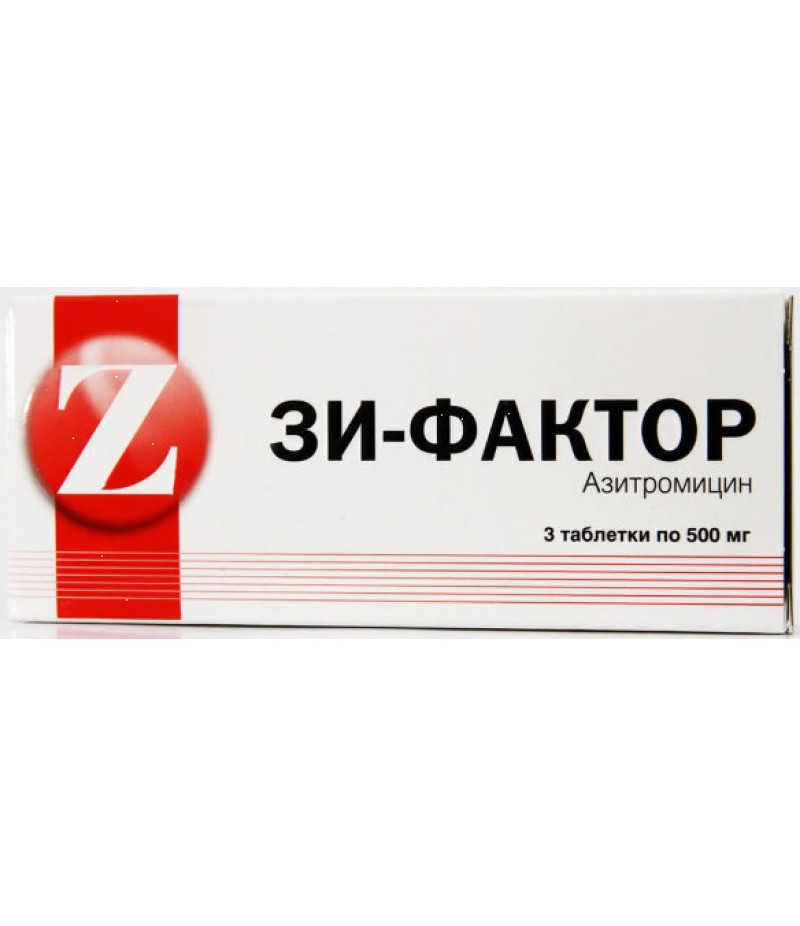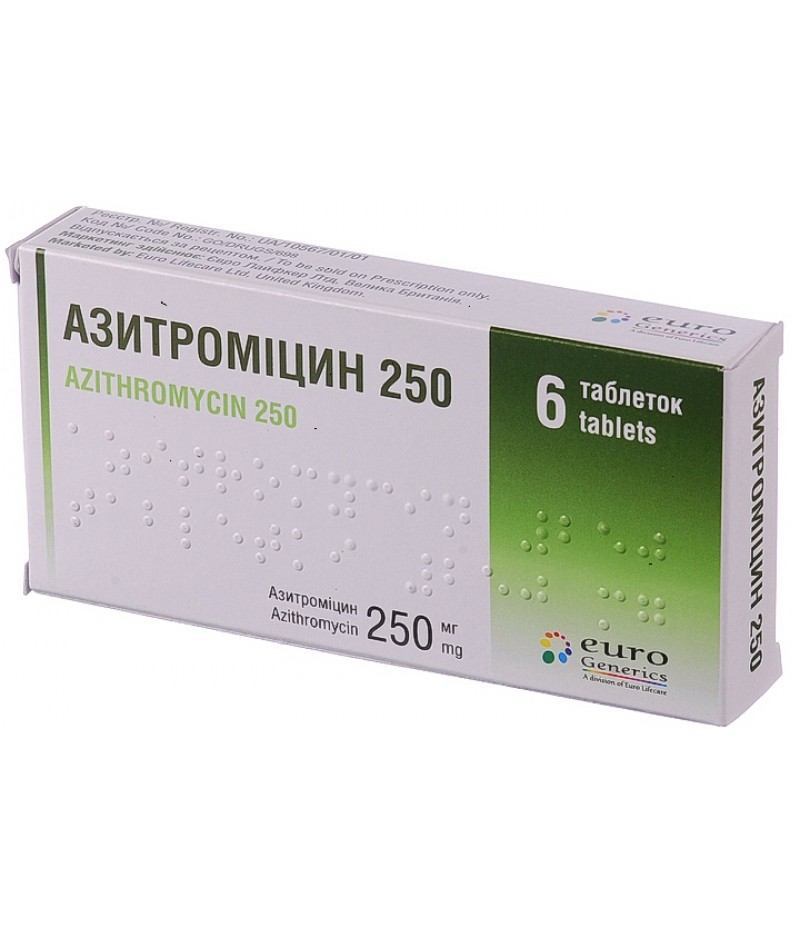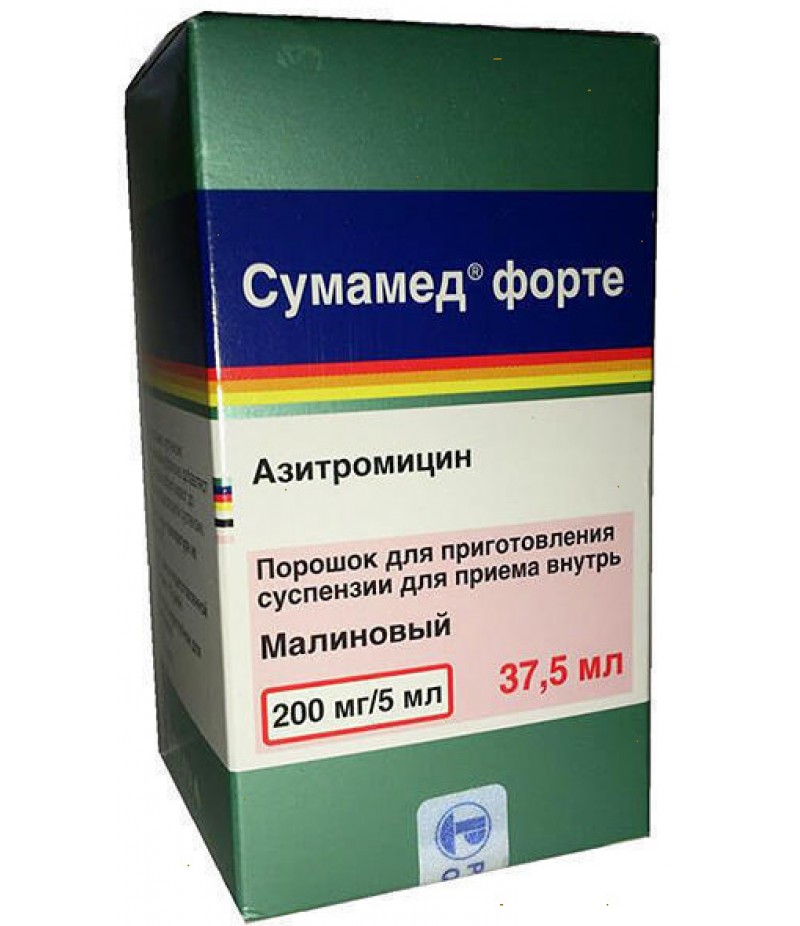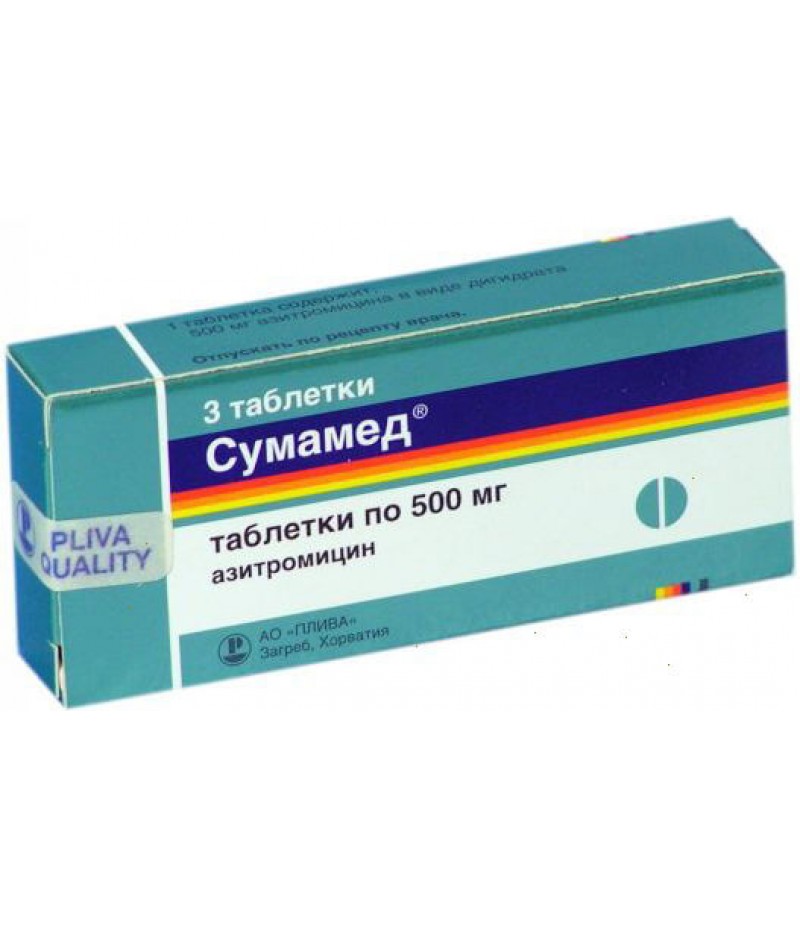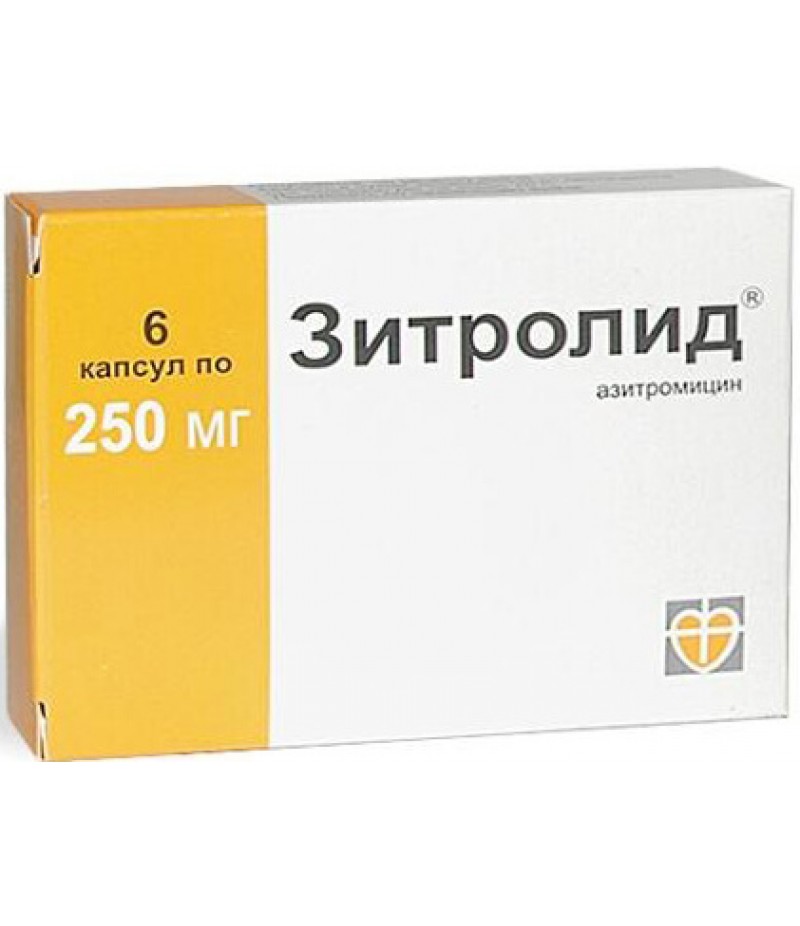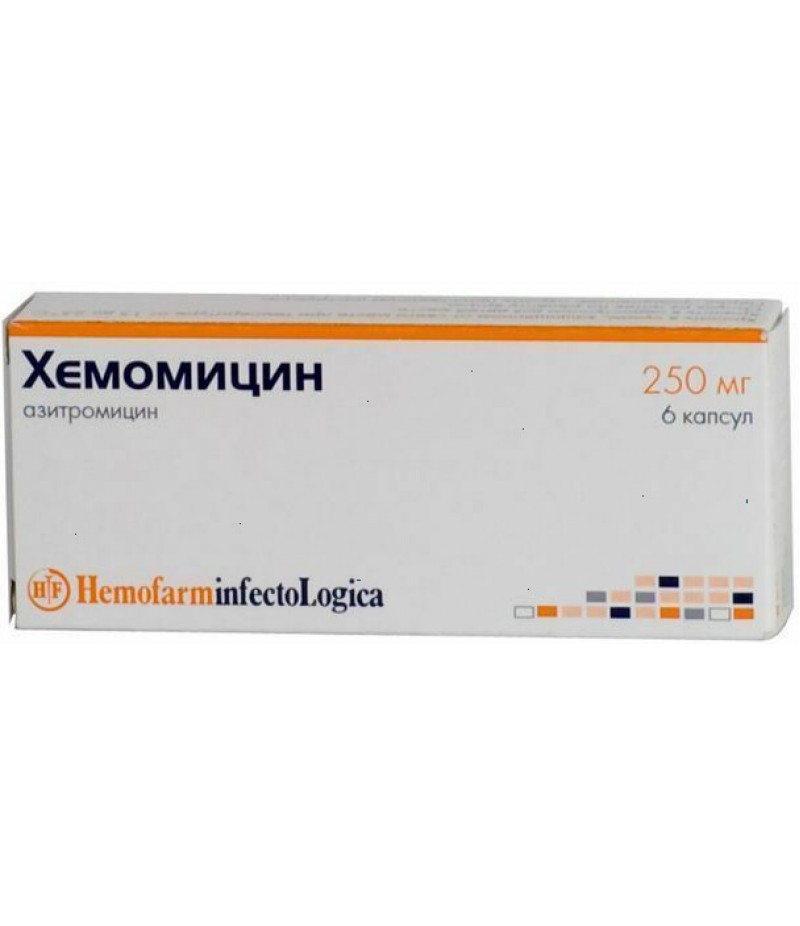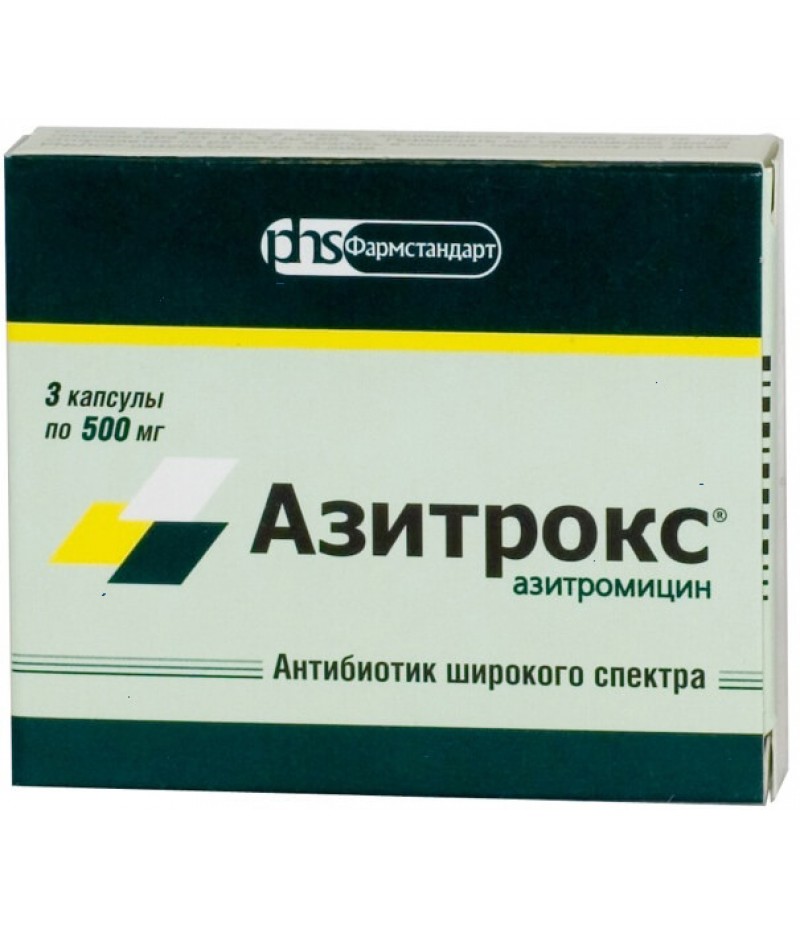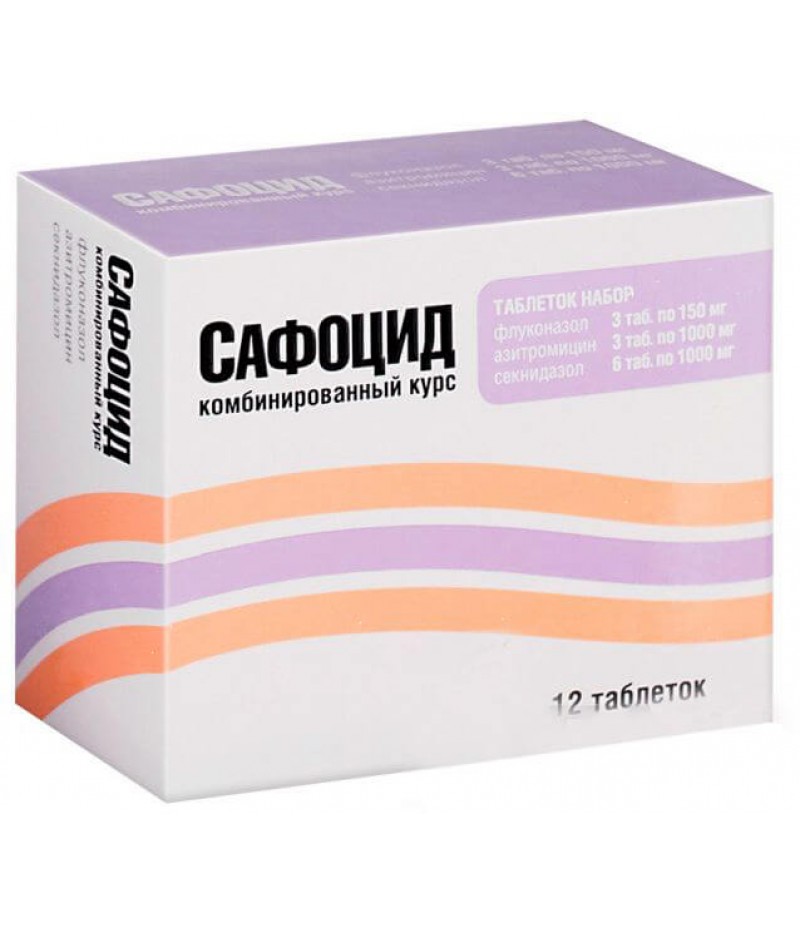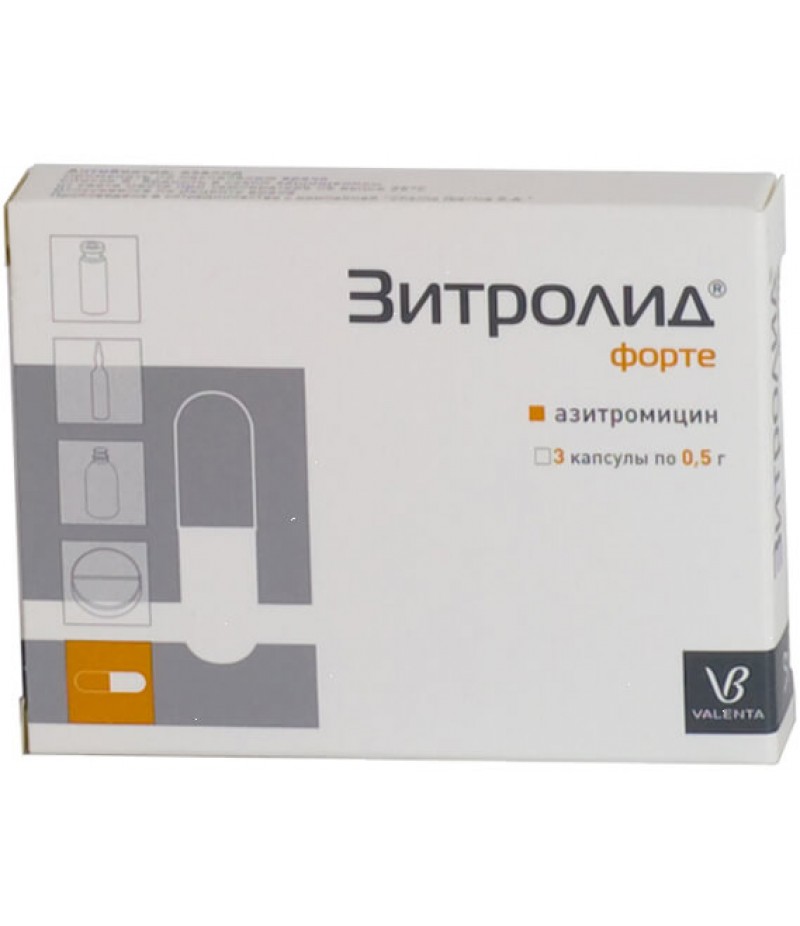ZI-Factor tabs 500mg #3
- $16.67
- 3 or more $16.49
- Availability:In Stock
ZI-Factor instructionYou can buy ZI-Factor onlineComposition In one capsule - 250 mg of azithromycin dihydrate; corn starch; milk sugar; sodium lauryl sulfate; aerosil; PVP. In one tablet - 500 ..
Tags: tabs
ZI-Factor instruction
You can buy ZI-Factor online
Composition
In one capsule - 250 mg of azithromycin dihydrate; corn starch; milk sugar; sodium lauryl sulfate; aerosil; PVP.
In one tablet - 500 mg of azithromycin dihydrate, calcium phosphate dihydrate; magnesium stearate; povidone; sodium lauryl sulfate; crospovidone.
The shell contains: hydroxypropylmethylcellulose; povidone; titanium dioxide; polysorbate; talc; acidic red dye.
Form of issue
Capsules gelatinous, firm, white. Packing contour mesh No. 6,10, cardboard packs.
Tablets, oblong, biconcave, covered with a light pink coat. Packing contour mesh No. 3, cardboard packs.
pharmachologic effect
Antibacterial. At high concentrations in the focus of inflammation, the Zi-factor has a bactericidal effect.
Pharmacodynamics and pharmacokinetics
Pharmacodynamics
Antibiotic Zi-factor of macrolide group, representative of azalides. It is characterized by a wide spectrum of action. Suppresses the synthesis of protein sensitive microorganisms. Highly active against gram-positive bacteria: Streptococcuspp., Staphylococcusaureus; Gram-negative bacteria: Haemophilus ducreyi, Bordetella parapertussis, Haemophilus influenzae, Haemophilus parainfluenzae, Legionella pneumophila, Moraxella catarrhalis Escherichia coli, Campylobacter spp., Neisseria gonorrhoeae, Bordetella pertussis and anaerobic bacteria: Bacteroidesfragilis.
It is active in relation to Mycoplasma pneumoniae, Toxoplasmagondii, Mycoplasmahominis, Chlamydiatrachomatis, Treponemapallidum. The ZI factor is inactive to Gram-positive bacteria that are resistant to erythromycin.
Pharmacokinetics
ZI factor in the gastrointestinal tract is rapidly absorbed, because it has lipophilicity and high stability in acid medium. The maximum concentration in the blood after taking the drug at a dose of 500 mg is achieved after three hours and equals an average of 0.4 mg / l.
It penetrates well into soft tissues and skin, organs of the urogenital tract and respiratory tract. Bioavailability of the drug is about 37%. Since azithromycin is characterized by low binding to blood proteins, its maximum concentration is achieved in tissues. The concentration of the drug in the foci of infection is about 30% higher relative to the concentration in healthy tissues and it is stored in the focus of inflammation in bactericidal concentrations throughout the week.
The drug is metabolized in the liver. Excretion of azithromycin takes place in two stages: half-life is 14-20 hours and for 41 hours (24-72 hours) is excreted completely from the body.
Indications for use
A wide list of infectious and inflammatory diseases, the causative agents of which are sensitive to the drug:
infections of the respiratory tract (pneumonia, acute bronchitis and relapses of chronic bronchitis), diseases of the ENT organs;
infectious diseases of soft tissues and skin (infected dermatoses, erysipelas, impetigo);
infections of the urogenital tract caused by the causative agent Chlamydia trachomatis;
at the stage of erythema migrans in Lyme disease;
in the combined therapy of peptic ulcer of the stomach and duodenum, associated with the causative agent Helicobacter pylori.
Contraindications
hepatic and renal insufficiency;
age up to 12 months;
arrhythmia;
increased individual sensitivity to macrolides.
With caution, the ZI factor is used during pregnancy. The antibiotic penetrates easily through the placental barrier. During pregnancy is prescribed only in cases where the benefit to the mother is higher than the risk to the fetus. In the period of breastfeeding, with the appointment of azithromycin, breastfeeding should be discontinued.
Side effects
Side effects develop relatively sparingly and are disturbed by:
cardiovascular system - palpitation, chest pain;
digestive tract - abdominal pain, stool disorders, dyspepsia, flatulence, cholestatic jaundice, gastritis, decreased appetite, increased enzymatic activity of the liver;
nervous system: drowsiness, headache, dizziness, neurosis, fatigue, sleep disorders, hyperkinesia;
urine-reproductive system: vaginal candidiasis, nephritis;
allergic reactions: increased photosensitivity, conjunctivitis, urticaria, angioedema.
Instructions for use Zi-factor (Method and dosage)
Once inside, per day, 1 hour before or after eating.
When infectious lesions of the ENT organs, skin and soft tissues, respiratory tract, 2 capsules are prescribed once a day for three days (the dose per course is 1500 mg).
In infections of the urogenital tract caused by the causative agent Chlamydia trachomatis: once 4 capsules (1000 mg).
With migrating erythema: for five days, once a day, according to the 1st day schedule, there are 4 capsules (1000 mg), from 2 to 5 to 2 capsules (500 mg). Total for the course is 3000 mg.
Children are prescribed at the rate of 10 mg / kg of body weight for 3 days.
If the kidney function is impaired, under the condition (CK> 40 ml / min), the doses are not adjusted.
Instructions for the use of Zi-factor should be strictly observed, otherwise, an overdose of the drug is possible.
Overdose
It is manifested by the following symptoms: nausea, vomiting, temporary hearing loss, diarrhea.
Interaction
Ethanol, antacids (magnesium-containing and aluminum), as well as food, reduce the absorption of the drug.
Zi-factor increases the concentration in the blood of digoxin, increases concentration and toxicity, and also slows the withdrawal of indirect anticoagulants, Ciclosporin, felodipine, methylprednisolone, terfenadine, carbamazepine, phenytoin, hexobarbital, bromocriptine, ergot, valproic acid, disopyramide alkaloids, theophylline, oral hypoglycemic agents .
The drug is not compatible with heparin.
Terms of sale
To buy ZI-Factor online you don't need a prescription.
Storage conditions
In dry place inaccessible to children at a temperature of no more than 25 ° C. List B.
Shelf life - 2 years.
Reviews about Zi-factor
Antibiotic Zi-factor, reviews about it in most cases are positive.
The patients are especially effective in treating angina. Already the day after his admission, the state of health improves considerably, the pain in the throat, swelling, aches in the joints, coughing disappears.
Also effective in the treatment of sinusitis - on the second day after taking the headaches are reduced, nasal congestion is eliminated. However, some patients complain of worsening overall health, heart palpitations, anxiety, upset of the stool.
Sometimes patients ask what is better to take, the generic Zi-factor or Sumamed? By pharmacological properties, these drugs are identical, but the price of the Zi-factor is lower almost three times.

